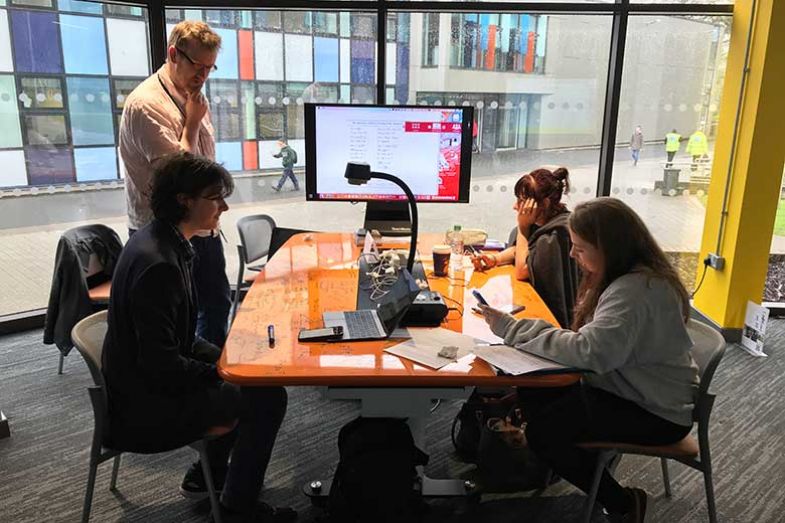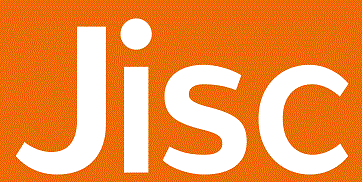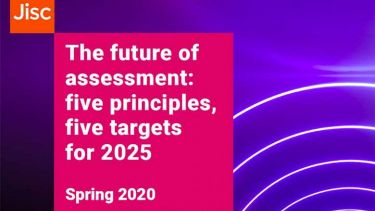
Image: Duncan Peberdy
Collaboration on tech-driven design will help the leaders and learners of tomorrow
The fourth industrial revolution is changing the world around us. Artificial intelligence (AI), robotics, big data and the internet of things will combine to impact on jobs and industry. However, the 21st century’s intellectually intensive jobs will be impacted just as much as those manual activities that were changed forever by the industrial revolution of the 19th century.
The fourth industrial revolution will also affect the roles that UK universities and colleges prepare students for, and educational institutions are ideally placed to help produce the workforce for this new world and the student experience to match it. And that includes adult learners as well as school leavers.
To take full advantage of the opportunity created by advanced technology we need a similar revolution in education – not just to meet the needs of industry, but also to ensure the best possible student experience, use of staff time and investment in estates and facilities.
Paul Feldman, chief executive of Jisc, the UK’s technology solutions not-for-profit, says: “We know that some universities are already developing an Education 4.0 experience for students that reflects the fast-developing world around them.
“But if we want to shape this new world to meet the expectations of students in 10 to 20 years’ time, we need more urgent collaboration across the sector. We want to work with universities to design and deliver the technological solutions for a future-proof student experience that can also help tackle the big challenges in HE.”
That’s why at the 2018 Universities UK (UUK) conference, Jisc introduced the Education 4.0 concept and invited delegates to reflect on where new trends and technologies might lead. This feedback will inform Jisc when we choose research and development projects to meet the needs of the educators and learners of tomorrow. Universities, colleges and research centres can still get involved by contacting Jisc.
Some of the following trends are being used by Jisc as prompts:
- Teaching transformed – how should human teachers focus their efforts if AI and other technologies become used to their full potential in the university experience?
- Personalised adaptive learning – an individualised approach that takes learner diversity, performance and behaviour into account.
- Assessment re-imagined – can AI, digital experiential learning and micro-credentials replace high stakes summative tests?
- Intelligent digital and physical estates – this concept is responsive to student journeys and interactions, helping universities deliver efficiencies and a smart approach to campus design.
University leaders who attended the UUK workshop were asked to predict the trend that they felt would have the greatest impact and discuss how institutions could best respond.
More than half the delegates felt that personalised adaptive learning was the key trend to watch, supported and underpinned by transformed teaching methods. Delegates said this transition was attractive to them because it lets the institution focus on developing learners as individuals.
University leaders were particularly interested in using AI to improve support for student mental health and wellbeing. It could highlight to personal tutors when a student is disengaged and potentially at risk.
It was acknowledged that profound changes to working practices need to be handled carefully. UUK delegates said that it was important to have a dialogue about the direction and the pace of change, in particular about reward mechanisms and policy frameworks that would encourage innovative practices.
Delegates also felt that many of the fundamental tenets of the university degree and the conventional practices of higher education would come under scrutiny. For example, will the metrics we use to measure the quality of higher education be fit for purpose for the world of tomorrow?
It was predicted that students would in future have greater flexibility in choosing their mode of engagement. For example, by mixing campus-based and distance learning on a module-by-module basis. Technology can sometimes create perverse incentives, such as the reduced student engagement seen when lecture capture is made available online and it is no longer necessary to attend lectures in person. University leaders said that technology such as learning analytics would be increasingly important in helping tutors to develop a holistic view of learners’ engagement and progress.
Delegates said that the emerging technological trends should produce great opportunities for students to take ownership of their learning and that learners should be able to see evidence of their progress towards their qualification. This could be done through credits that they have accumulated as the university’s AI recognises their growing mastery of the subject matter. Delegates felt that these types of systems would eventually manifest across the education system, as confidence grows in using technology to transform assessment.
Finally, the workshop noted that more than 75 per cent of employers are reporting a shortage of digital skills in their workforce. They felt that UK universities and colleges can play a pivotal role in retraining and up-skilling, providing adult learners with a “careers booster jab”. It was also recognised that a large proportion of future students would be looking for flexible approaches to learning because of their work and caring commitments. Technology will play a vital role in enabling this.
Armed with this valuable feedback, Jisc will decide – in conjunction with universities, colleges and research centres – which ideas to take forward as R&D projects. Each project will be designed collaboratively to meet the needs of IT, business and teaching staff, and students.
Examples of Education 4.0 in action
An award-winning chatbot in Leeds
In the summer of 2018, a chatbot that helped boost enrolment of students through clearing at Leeds Beckett University won a Times Higher Education Leadership and Management award (THELMA) for digital innovation.
The chatbot, known as Becky, which was developed in two months for just £30, won the Jisc-sponsored digital innovation of the year award.
Using AI and chatbot technology, Becky provides an instantaneous response and information to prospective students going through clearing.
A total of 89 students who were made an offer via the chatbot enrolled in September 2017, which represents a 46.6 per cent conversion of offers to enrolment. This compared to a general conversion rate of 26 per cent.
Leeds Beckett’s enrolment of students recruited during clearing increased by 11 per cent in 2017 and the university estimates a return of investment on Becky of £2.4m in tuition fees.
Northampton’s blended learning
The University of Northampton has moved to a new £330m campus that has one large lecture theatre and several smaller spaces. Active Blended Learning (ABL) is embedded across the entire teaching practice.
The dean of learning and teaching, Professor Alejandro Armellini, explains: “The traditional view that the blend is a combination of online and face-to-face is pushed to one side. ABL is far more sophisticated, interesting and exciting than a mere combination of face-to-face with online teaching.
“ABL provides a learning environment where students play an active role and are given the opportunity to engage in a variety of ways in and outside the classroom, in the field, in the lab, in the studio and in the workplace. Those study modes are fully integrated into a proper blend, not different strands of a course running in parallel.
“Over the past three years we have been redesigning our curriculum to ensure that the principles of ABL are followed, but also that we review space allocation and timetabling to accommodate the students in smaller teaching rooms.”
Bolton plans to co-ordinate through smartphones
Bolton College launched its campus chatbot, Ada, in April 2017. At the outset, it could answer everyday questions from students about college services, life on campus and their studies.
Ada is about to get an upgrade, which will enable students to access it through their smartphones, thanks to the support from the Ufi Charitable Trust.
The college is currently teaching Ada to respond to a broad set of staff questions that will assist teachers and support teams to gather on-demand information about student progress, staff rotas, holidays taken, professional development records, documents on the college intranet and much more.
To participate in Jisc’s Education 4.0 programme email innovation@jisc.ac.uk
This article was commissioned by Times Higher Education in partnership with Jisc, the UK body for digital technology and resources in higher education, further education, skills and research.
















